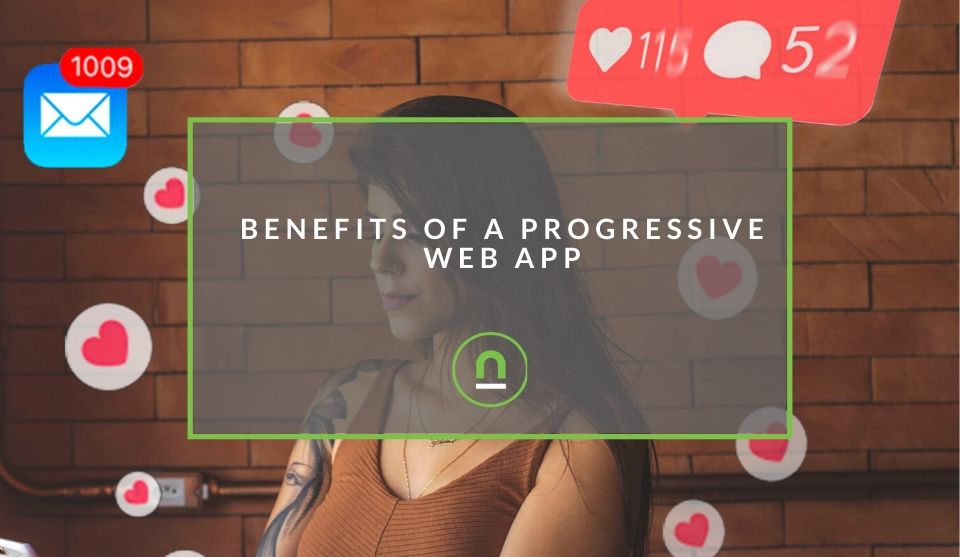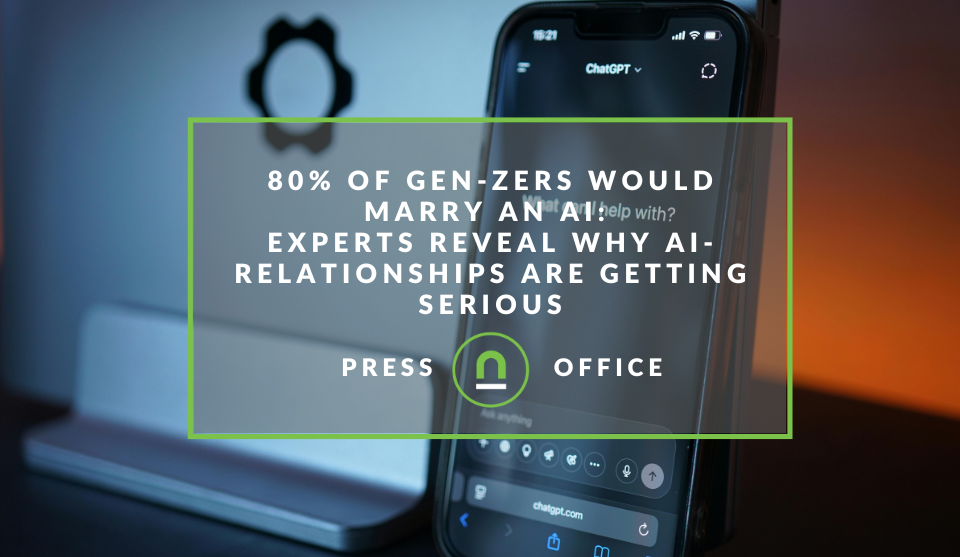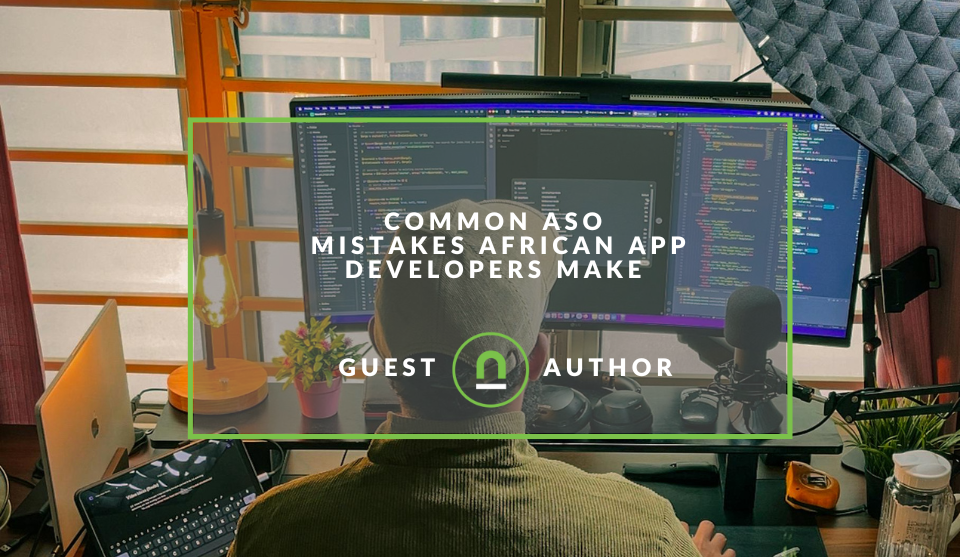Recent posts

Money Talks
XRP vs. Stablecoins: Which Is Better for Cross-Border Payments in 2026?
28 January 2026

Press Releases
Sleep Expert Cautioning Against TikTok’s ‘Mouth Taping’ Trend
28 January 2026

Press Releases
Why Vintage Watches Are the Hottest Trend in 2026
27 January 2026

Press Releases
Africaworks Accelerates The Rollout Of Real Estate Investment Platform
20 January 2026
Popular posts
Extravaganza
Trending Music Hashtags To Get Your Posts Noticed
24 August 2018
Geek Chic
How To Fix iPhone/iPad Only Charging In Certain Positions
05 July 2020
Extravaganza
Trending Wedding Hashtags To Get Your Posts Noticed
18 September 2018
Money Talks
How To Find Coupons & Vouchers Online In South Africa
28 March 2019
12 Benefits Of A Progressive Web App
12 April 2020 | 0 comments | Posted by Che Kohler in Geek Chic
Mobile apps have been all the rage for the last ten years with mobile games, social media and utility apps all becoming staples on Smartphones around the world. The ability to prepackage a piece of the internet into a native experience on a device has revolutionised the way we interact with the internet so much so that people come to expect a mobile app for popular businesses.
While mobile apps sound great, they aren't as practical for everyone like they are for the likes of Tinder or Facebook. Some businesses make sure their mobile app is their primary source of interaction like a Tinder or Uber while other sites are so large, a mobile app augments their current service like a Twitter or Amazon.
Mobile apps are expensive to develop, maintain you're also at the mercy of app stores like Google Play and iTunes as a way to get users. When you add to that the cost of acquiring and holding a mobile app user, it becomes problematic for businesses to continue to support this technology. Mobile apps are great, but they're not for everyone.
What is a PWA?
A PWA is basically a hybrid of a web page and mobile application. Unlike traditional native apps for Android, Windows or iOS apps we are sued to as consumers, the PWA is developed using Javascript, HTML and CSS. They run on top of a script called a service worker that allows them to run like a regular app in most respects.
This makes PWAs unique in several ways compared to regular native apps and provides different functionality. Native apps still haven't gone away, but with consumers now being pickier about what they install on their devices download are hard to come by for apps compared to years gone by and keeping an app relevant is a costly exercise.
Research on PWA has shown several advantages to companies, such as:
- 68% increase in mobile traffic
- 15-fold improvement of load and installation speed
- 25-times reduced use of device storage
- 52% average conversion increase
- 78% average session increase
- 137% engagement increase
- 42.86% lower bounce rate when compared to that of mobile websites
- 133.67% increase in page views
Why the need for PWA?
As mobile has become a more important part of the user's internet experience, we've seen plenty of projects to try and provide mobile users with a high-quality experience regardless of the limitations of mobile devices. We first saw responsive design which has been by far the most popular option; then we saw the introduction of native apps, dynamic serving and AMP pages, all who have their pros and cons. Each implementation has brought us closer to improving the web, and a lot of the lessons have been absorbed by the PWA project.
PWA combines the capabilities of websites and mobile software that allow creating an immersive user experience and increase user engagement and conversion rate.
But how does it provide value to in so many ways? Let's take a look at the key advantages of PWA its range of capabilities and why companies, from startups to market leaders, should opt for them.
1. Cheaper to develop
PWAs do not require different versions for various devices like Android or iOS, so managing your codebase and staff requirements are cheaper as well as maintain and bug fixing. Your developer or development team will only need to manage a single progressive app to meet the requirements of all endpoints on which it operates. So, it significantly reduces the level of efforts that developers provide, and as a result, the cost to create a PWA decreases. It is said that the price of a PWA can be quoted at around three or four times lower than that of a native mobile app.
2. App-like environment
Mobile users have become accustomed to the native apps, and their reactions are favourable when compared to interaction with sites via browsers, as they are more user-friendly, can operate offline and have a more attractive interface. Progressive web applications provide superior user experience with design and settings that are very similar to those of native mobile software.
PWA's also offer the same speed, responsiveness and comprehensive capabilities of websites with database access and automatic data. Since PWAs are integrated with the main site, there is no need for additional deep linking code as you would with native apps and As a result, search engines index them, which is why systems such as Google or Bing can find PWA pages.
3. Quick installation
One pain point for many app developers is the fact that one has to funnel your product via the app store, and you're at the mercy of their rankings, reviews and their approval of your app. Being at the mercy of a third-party platform like Android and iOS app stores has always been a gripe for app developers. Unlike regular mobile applications, PWAs do not require a long and complicated installation process, which significantly improves user experience. Users download an app, quickly and directly to their devices, and they do not need to go to the App Store or Google Play. As browser support improves, we've seen some browsers even offer call-to-action-like teasers that prompt users to download these apps when they visit respective websites.
4. Improved performance
PWAs cache and serve text, images and other content in a specific, efficient manner, which enables them to operate like websites and significantly improves the running speed. Along with quick operation, impeccable performance is another attribute that has an impact on user experience and conversion rates. Retailers and content providers should adopt this type of software as it enables a more positive user experience than mobile apps by improving retention and customer loyalty.
5. Lightweight
Since they do not rely on as much underlying code, PWAs are much smaller than their native app counterparts. Downloads can be incredibly fast. Uber’s PWA is 50 kilobytes—that barely exists in storage space terms. It can be downloaded almost the very moment you hit the button. And unlike a website, it doesn’t matter how fast or slow the connection is—the app will load instantly.
6. Platform and device-agnostic
Unlike regular applications that are very demanding on operating systems and the technical capabilities of various devices, PWAs work everywhere. A single app can satisfy the needs of multiple consumers and provide a consistent user experience on different endpoints. At the same time, this type of application enables cross-support to users that switch between their devices by providing them with a continuous experience. Users can access an app that has the same settings and data like that on another device. This fact also significantly contributes to business automation, as companies that rely on PWAs know that the software their employees' use performs seamlessly regardless of the platform or app version. Also, PWAs are highly responsive to various form factors, as they adapt correctly to different screen sizes.
7. No updating issues
PWAs have specific functionality that allows them to update automatically, without notifying users and bothering them with permission requests. These apps update themselves every time when users visit them, thus eliminating the need to download batch changes and install them. They provide a renewed look with no human participation. However, some of the producers of progressive apps send push notifications to users to inform them about the arrival of a new update. All the same, producers have full control of the information and content, to which users have access.
8. Seamless offline operation
The capability to operate offline or in compromised networks makes PWAs much more convenient than websites, which require a proper internet connection. Built-in service workers cache essential progressive web apps' features and information automatically, which eliminates the necessity to download it and allows users to access it without an internet connection. It is based on the saving of information that users previously accessed, for example, pages. If they try to open those that they have not visited online, an app can show a custom offline page. This capability is crucial for retailers, as it allows them to prevent users from abandoning their catalogues and enhances customer retention.
9. Push notification functionality
Like native mobile applications, PWAs have access to device-specific functionality, such as push notifications. This capability can be performed in various ways and allows companies to make the best use of content advertising. Why are push notifications exceptionally efficient when it comes to PWAs? According to some statistical data, almost 60% of users allow their progressive applications to send them "push notifications", which significantly increases opportunities to promote products or services. .
10. Enhanced security
PWAs rely on HTTPS to provide data safety and minimise the risk of security issues, as this protocol allows to preclude snooping and content tampering. Also, the applications take advantage of Web Bluetooth technology that includes specific security capabilities.
11. Hardware intergration
If you think the web is limited to just text and images, you are missing out. For a while now the web has offered excellent hardware integration. This includes some of the following features such as:
- Geo-Location
- Real-Time Camera
- Data Storage
- Payments
- Biometric Authentication
- USB/Bluetooth
- Motion Sensors
- Microphone
These are just a few of the modern APIs you can build into your web applications. Today the gap between what was only achieved with a native application has closed, and websites can now have access to the same feature sets.
12. Popular CMS's and codebases are providing PWA support
Google has been a strong proponent of PWA, and we've seen continued support for it from popular browsers and handset manufactures to have the framework running smoothly on the various devices. As the groundwork is laid out and improved, we've also seen CMS's like WordPress and Magento start to provide support for PWA migration which is why I am bullish on this approach for startups especially those in developed markets where the majority of their users will be mobile-first or mobile-only.
Be progressive in your app development
Embracing new technology is a risk some will be willing to take, and PWA is by no means a guarantee that your project will be successful. However, it is a far more affordable and manageable solution for those looking to provide a better mobile experience for their users and can even be used in conjunction with native apps as an option for customers
We're already seeing large players starting to adopt PWAs such as Pinterest, Twitter, AliExpress and even Forbes, so we're sure this technology will be improved over time. The upside to this technology is a no brainer and progressive web application s are the way of the future, which is why you should consider switching to them now to get the most out of their capabilities for your business.
Contact us
If you would like to know more about mobile marketing for your business then don’t be shy we’re happy to assist. Simply contact us
Are you looking to promote your business?
South African small business owners can create your free business listing on nichemarket. The more information you provide about your business, the easier it will be for your customers to find you online. Registering with nichemarket is easy; all you will need to do is head over to our sign up form and follow the instructions.
If you require a more detailed guide on how to create your profile or your listing, then we highly recommend you check out the following articles.
Recommended reading
If you enjoyed this post and have a little extra time to dive deeper down the rabbit hole, why not check out the following posts on mobile apps & mobile marketing.
You might also like
80% of Gen-Zers Would Marry an AI
19 January 2026
Posted by Steph M in Press Releases
Experts reveal why AI relationships are getting serious, and the reasons why 4 in 5 young people are open to marrying ai as human dating becomes too ...
Read moreCommon ASO Mistakes African App Developers Make
09 January 2026
Posted by Daniel Davis in Industry Experts
ASO is Localisation, Not Translation: Failing to research specific local search terms and cultural nuances is the biggest ASO error in African market...
Read more{{comment.sUserName}}
{{comment.iDayLastEdit}} day ago
{{comment.iDayLastEdit}} days ago
 {{blogcategory.sCategoryName}}
{{blogcategory.sCategoryName}}


